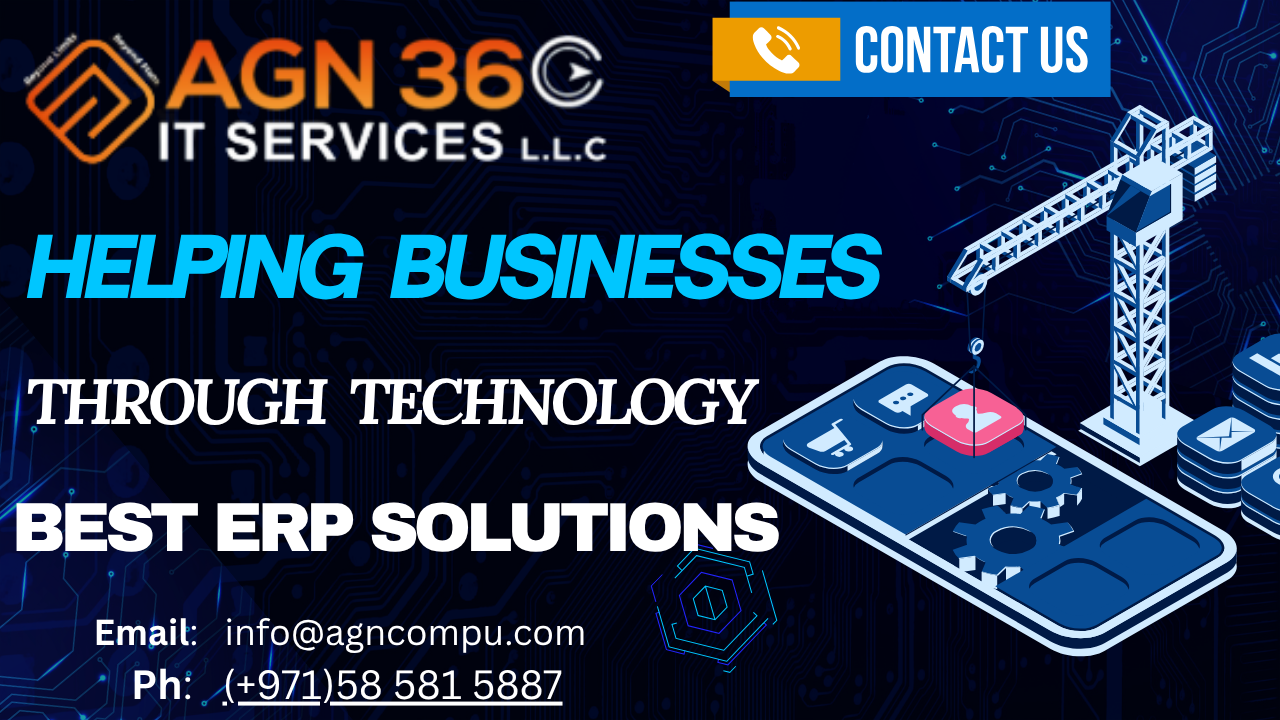Why Every Real Estate Business Needs Property Management ERP Software in 2025

The real estate sector is witnessing an unprecedented digital transformation in 2025. As competition intensifies and customer expectations rise, traditional property management methods are no longer sufficient. Businesses need smarter, more efficient solutions to handle the complexities of managing residential, commercial, and rental properties.
This is where Property Management ERP Software comes into play. From streamlining operations to enhancing customer experiences, ERP systems are now a must-have for real estate businesses aiming to stay competitive in the modern landscape.
Current Challenges in Property Management
Property management involves juggling multiple tasks simultaneously — tenant communication, lease tracking, rent collection, maintenance, financial reporting, and regulatory compliance. Managing all these manually can lead to:
1. Disorganized Tenant & Lease Management
Handling tenant records, tracking lease expirations, and ensuring timely renewals becomes chaotic without a centralized system.
2. Inefficient Financial Processes
Manual rent collection, invoice generation, and expense tracking are time-consuming and prone to errors, affecting cash flow and profitability.
3. Maintenance Delays
Without an automated system, logging, assigning, and resolving maintenance requests can be slow, impacting tenant satisfaction.
4. Data Scattering & Inaccuracy
Critical business data is often spread across spreadsheets, emails, and paper files, making it difficult to retrieve accurate information quickly.
5. Legal Compliance Risks
Keeping up with local real estate regulations, tax filings, and lease documentation manually increases the risk of non-compliance.
How Property Management ERP Software Solves These Problems
Centralized Tenant & Lease Management
An ERP system stores all tenant information, lease agreements, and payment histories in one place. Automated alerts for lease renewals and pending payments ensure proactive management.
Automated Financial Operations
ERP software simplifies rent collection, automates invoicing, and tracks expenses. Integrated financial modules handle taxation and generate real-time financial reports for better decision-making.
Streamlined Maintenance Management
Tenants can raise service requests through a portal, which are automatically assigned to maintenance teams. The progress is tracked until resolution, ensuring prompt responses.
Real-Time Reporting & Analytics
Advanced ERP systems offer dashboards that provide insights into occupancy rates, rental income, maintenance costs, and more, enabling data-driven strategies.
Compliance & Document Management
ERP software helps digitize and securely store legal documents, lease agreements, and compliance records, reducing paperwork and ensuring readiness for audits.
Property Management ERP in Dubai: A Game Changer
Dubai’s real estate market is one of the most dynamic and competitive in the world. The city’s rapid urbanization, growing expat population, and booming tourism sector drive a constant demand for efficient property management.
However, managing properties in Dubai comes with its own set of challenges:
-
High Tenant Turnover Rates
-
Stringent Regulatory Requirements (Ejari, RERA compliance)
-
Demand for Premium Customer Service
-
Multi-property & Multi-owner Management Complexities
To address these challenges, adopting a Property Management ERP Software in Dubai is no longer optional — it’s essential.
Tailored Solutions for Dubai’s Market
ERP systems designed for Dubai’s property market offer features like multilingual support, integration with Ejari for lease registrations, VAT compliance modules, and support for Islamic finance principles where needed.
Enhanced Customer Experience
In a competitive market like Dubai, providing seamless digital experiences to tenants and property owners is crucial. ERP software facilitates online portals for rent payments, maintenance requests, and communication, improving tenant satisfaction and retention.
Optimized Portfolio Management
For real estate businesses managing multiple properties across Dubai, ERP software enables efficient portfolio management by consolidating data, automating workflows, and offering real-time visibility into business performance.
Key Benefits of Property Management ERP Software
-
Increased Operational Efficiency
Automates routine tasks, reducing manual effort and human errors. -
Financial Accuracy & Transparency
Streamlines rent collection, billing, and expense management with real-time financial insights. -
Better Tenant Engagement
Improves communication channels, tracks service requests, and enhances overall tenant experience. -
Regulatory Compliance Simplified
Keeps your business aligned with local laws and reduces the risk of penalties. -
Scalability for Growth
Supports your business expansion by handling increasing data volumes and property portfolios.
Future Trends: Why 2025 is the Right Time
With the UAE’s Vision 2030 and Dubai’s smart city initiatives, technology adoption in real estate is accelerating. Cloud-based ERP solutions, AI-driven analytics, and mobile-first platforms are becoming the new norm.
Real estate businesses that invest in property management ERP software in 2025 position themselves for long-term success by enhancing agility, reducing costs, and staying ahead of competitors.
Conclusion
For real estate businesses aiming to streamline operations, improve financial control, and deliver superior tenant experiences. The ERP Software is an indispensable tool in 2025.
Especially in competitive markets like Dubai, where regulatory compliance, tenant satisfaction, and efficient portfolio management are critical, adopting a tailored ERP solution ensures your business remains future-ready and competitive.
- Art
- Causes
- Crafts
- Dance
- Drinks
- Film
- Fitness
- Food
- Spiele
- Gardening
- Health
- Startseite
- Literature
- Music
- Networking
- Andere
- Party
- Religion
- Shopping
- Sports
- Theater
- Wellness



